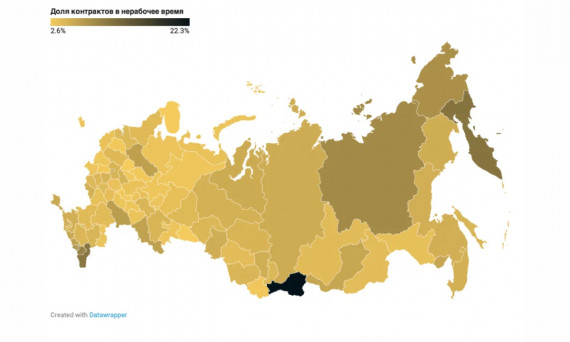European University researchers from MAST (EUSP Center for Machine Learning, Data Analysis and Statistics) and CESIS (EUSP Center for Arctic Social Studies) have examined how much public procurement specialists work after hours. Anastasia Karaseva and Elena Veretennik analyzed available data from the unified information system “Zakupki” (UIS "Purchases"). This system is used for procurement by the whole country. There were 33 million contracts drawn up in accordance with law 44-FZ. The time span was five and a half years, from 2015 to June 30, 2021 inclusive.
Using UIS publication time metadata, they calculated the proportion of contracts published outside business hours between 19:00:01 and 07:59:59 on weekdays and weekends according to the production calendar.
The analysis showed that there are regional and temporal patterns in overtime work:
- in the east of the country, "purchasers" tend to process more than in the west;
- at the end of the year - more is done than at the beginning;
- on Friday evenings people tend to rest, but not always on Saturdays.
Working after hours is determined by many factors; one of the main ones is the technical availability of the UIS. The number of days when routine maintenance was carried out in the UIS exceeded 50% in some months.
You can learn more about who in public procurement works overtime and how much (and see a nice visual of the study) here.
